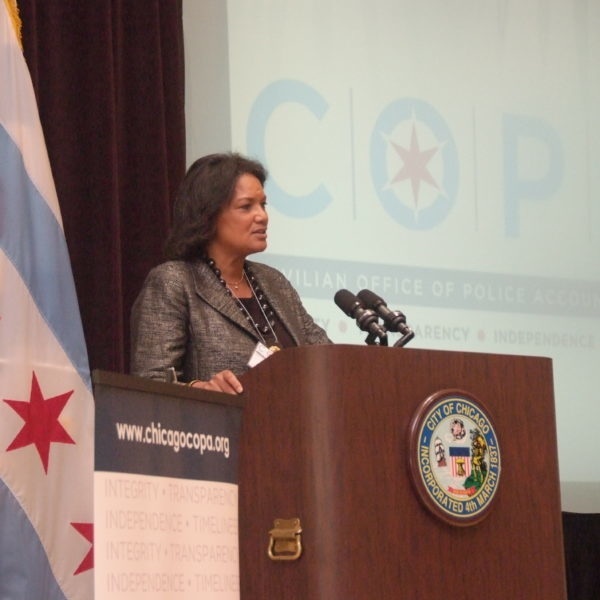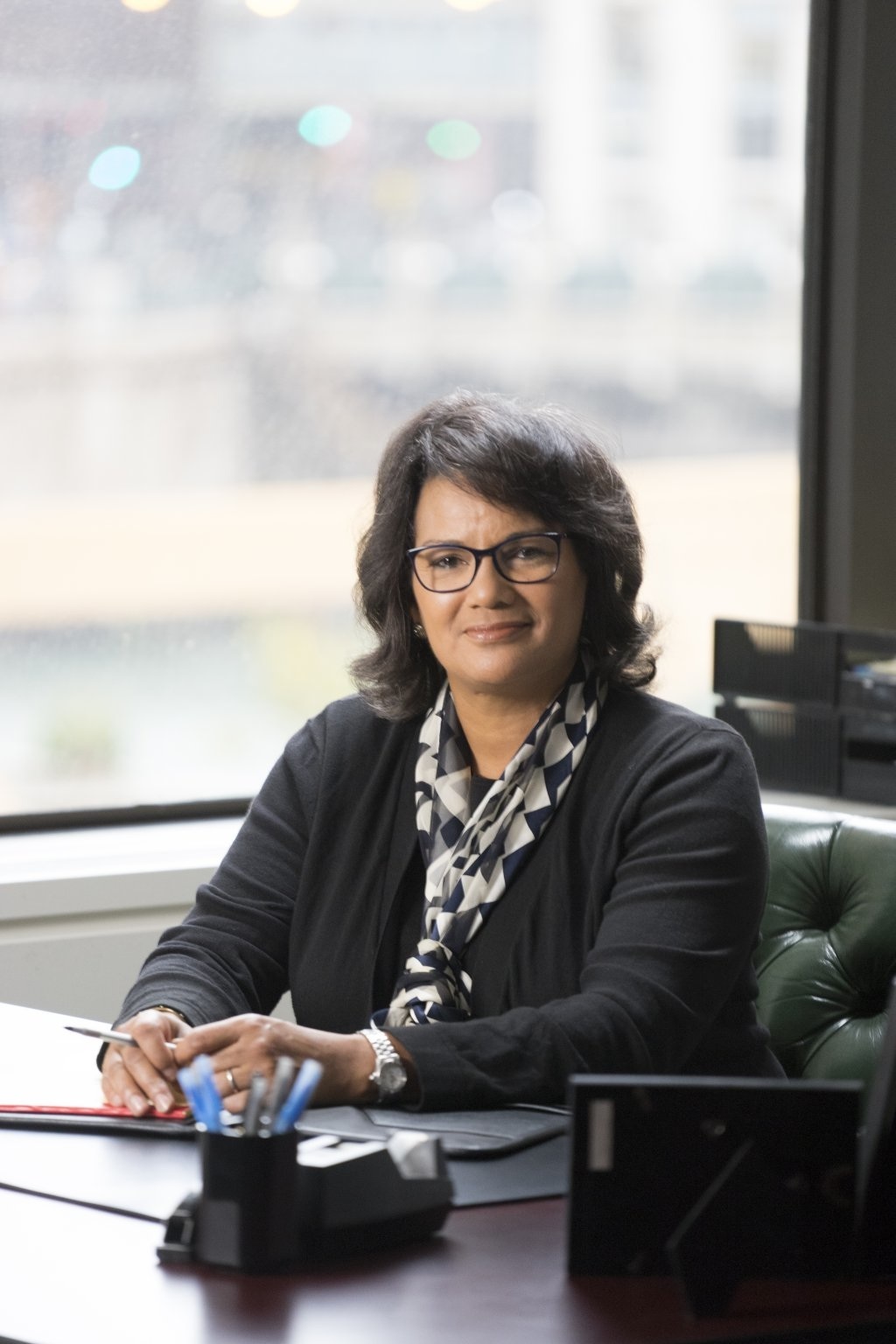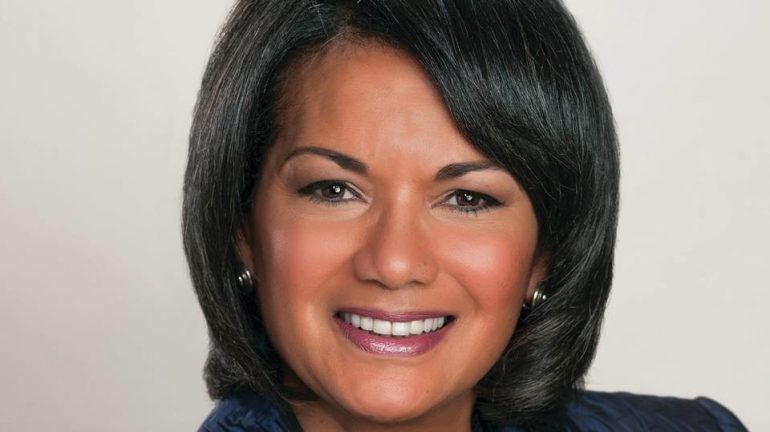Sharon Fairley was appointed as the new chief administrator of the Independent Police Review Authority (IPRA) in December 2015 in the wake of the botched handling of the Laquan McDonald shooting case by the Chicago Police Department, the State’s Attorney’s Office, the Mayor’s Office and IPRA.
On October 5, 2016, the Chicago City Council passed an ordinance to establish the Civilian Office of Police Accountability, which would replace IPRA. On September 15, 2017, COPA officially opened.
Fairley oversaw the transition between the two agencies. On October 10 of last year, she formally announced that she was leaving COPA to run for the Democratic Party nomination for Attorney General in 2018 to replace Lisa Madigan. Fairley was recently endorsed by the Chicago Tribune for the Democratic nomination; the Trib wrote that it was “impressed” by her “short tenure as chief administrator” of COPA.

Below, Fairley answers questions related to her time with the police agencies and her run for Attorney General.
N’DIGO: How did you become interested in a political career?
Sharon Fairley: Before becoming a lawyer, I had a successful business career, working my way up the ladder to the point where I was a senior executive at a major pharmaceutical company. Although I enjoyed the work, there was something missing in my life.
I was raised by two dedicated public servants who had an important influence on me. After experiencing 9/11 as a resident of a New Jersey town that lost many lives to the attack, I decided to make a change and go to law school to focus my professional life on public service.
Since earning my law degree, I have practiced law exclusively on behalf of the people of Illinois. I have served as an assistant attorney general, a federal prosecutor, and a leader of city agencies engaged in government accountability. This is the first time I ever considered running for elective office, when Attorney General Lisa Madigan announced she was stepping down.
Given my love of the law, my commitment to public service, and my work on police reform and accountability, the office of Attorney General seemed like the next step for me to make a difference. I believe I can make that difference especially in the areas of consumer protection, government corruption and oversight of the police consent decree.
I actually decided to step down from COPA well before deciding to enter the race for Attorney General.
Before you entered the race, you were serving as the Chief Administrator of the Civilian Office of Police Accountability, an agency that had only been launched a few weeks before. Why did you decide to leave that position to enter the attorney general race?
In December 2015, I was asked to take over leadership of Chicago’s troubled police oversight agency, the Independent Police Review Authority, or IPRA. It was an honor and privilege to take on this important challenge.
I immediately set to work instituting a series of reforms to improve the quality and timeliness of that agency’s work. However, within a few months, the mayor’s Police Accountability Task Force concluded the reputation of the agency I was asked to lead was so badly tarnished that it could not be saved and a new agency should be built to replace it.
Once that decision was made, I essentially had two jobs. One was to maintain IPRA operations, because the city still needed a place for taking in police misconduct complaints and for investigations to proceed. The other was the creation of the new Civilian Office of Police Accountability.
After months reviewing and digesting the findings of the Police Accountability Task Force and the Department of Justice Report, my leadership team and I designed the new agency to address the problems of its predecessor. In particular, we built the structure and functions of the new agency to deliver on four key values: integrity, transparency, independence, and timeliness.
As we prepared for the launch of the new agency last September, I began to realize it would be a good time to “pass the baton” to the next leader, who could start anew and not have the burden of being associated with IPRA.
I was originally brought into the role during a time of controversy and crisis, and I did not want my presence at the new agency to undermine this agency’s reputation. So, I actually decided to step down from that role well before deciding to enter the race for attorney general.
What was your proudest achievement in that police work?
Although building the new Civilian Office of Police Accountability was a rewarding and important accomplishment, the achievement I am most proud of was the influence that our agency’s recommendations, under my leadership, had on the new use of force policies adopted by the Chicago Police Department.
You are running for Illinois Attorney General. Why? And what do you think you might accomplish in this office?
As the top lawyer for the state, the attorney general can play an essential role in ensuring that all residents of our state have the freedom, resources, and opportunities to thrive. I am seeking this office because I want to continue to serve the people of Illinois by standing up to protect their civil rights, health, and well-being.
My goals will be to serve as a strong advocate for policies and legislation that are in the best interests of all Illinoisans, to ensure that our citizens and government have effective legal representation, and to identify and pursue innovative legal solutions for the serious problems we face.
As part of your platform, you say you want to promote “smart” criminal justice reform. What do you mean by that?
Our criminal justice system is badly broken. I believe our political leadership has failed to provide real, workable solutions that can help fix it. As attorney general I will work to promote specific statewide initiatives that will help address over-incarceration; replace the discriminatory bail system with a risk-based approach; advocate for evidence-based programs that are proven to reduce recidivism; and analyze the criminal justice system from top to bottom to identify the root causes of the injustice we see all too often.
As Attorney General, what solutions do you have for gun crime?
Unfortunately, there is no one simple solution to addressing gun violence, which is truly a statewide issue. I will take a multi-pronged approach that will include working with the General Assembly to strengthen Illinois laws; working with the attorneys general nationwide to push for stronger federal gun control laws; collaborating with and coordinating the work of the state’s attorneys and law enforcement agencies to improve and increase enforcement; and helping to direct resources and programs to the communities most affected by gun violence to address the underlying causes.
Nearly 1,000 Illinois residents and 30,000 individuals across America are killed by guns each year. Gun violence is a public health crisis that needs to be attacked in a comprehensive manner.
As attorney general, I will attack the problem of gun violence on three fronts: (1) common sense gun legislation; (2) more proactive enforcement; and (3) a community-driven approach on education, after-school programs and economic development.

What do you love most about Chicago?
There is so much to love about Chicago that it’s hard to pick just one thing. I love the diversity of the neighborhoods. I love its physical beauty. I love the richness of its culture, and the warmth of its people.
What’s on your playlist?
I have truly eclectic tastes when it comes to music. I have a mix of old-school R&B, blues, contemporary pop & R&B, and jazz on my iPod. My guilty pleasure is listening to Singers Unlimited every Sunday on WGBO, the New York jazz station.
Who would you most like to have lunch with?
Chance the Rapper.
What’s your favorite restaurant in Chicago?
I am always up for a good steak at Michael Jordan’s.








